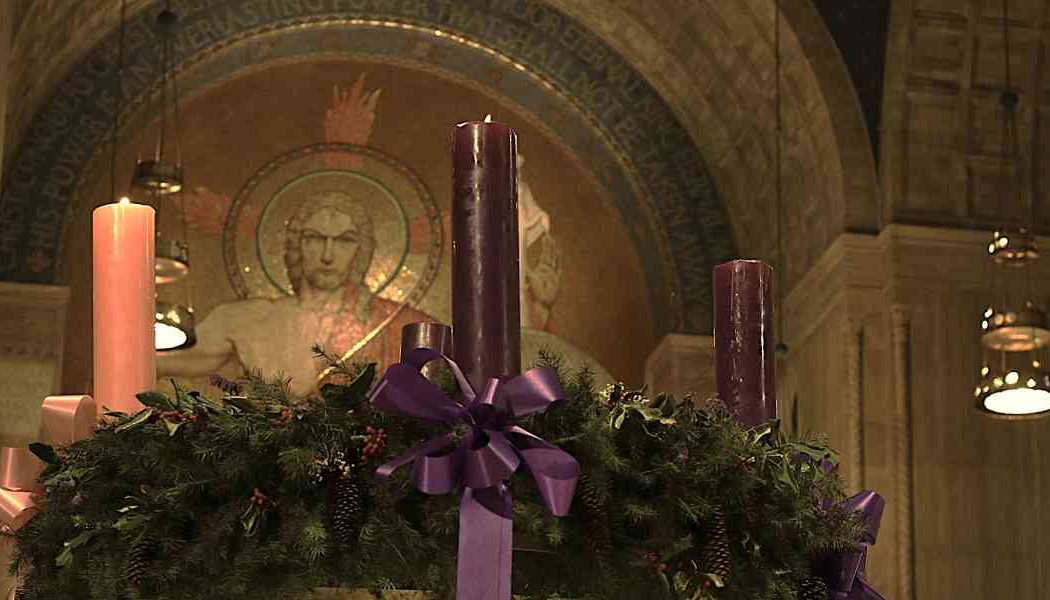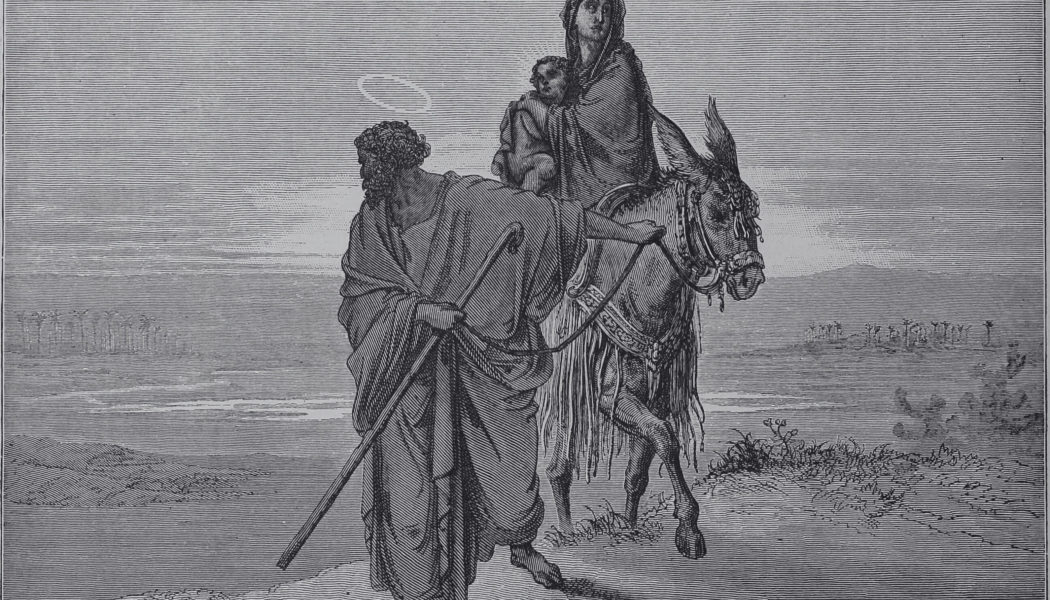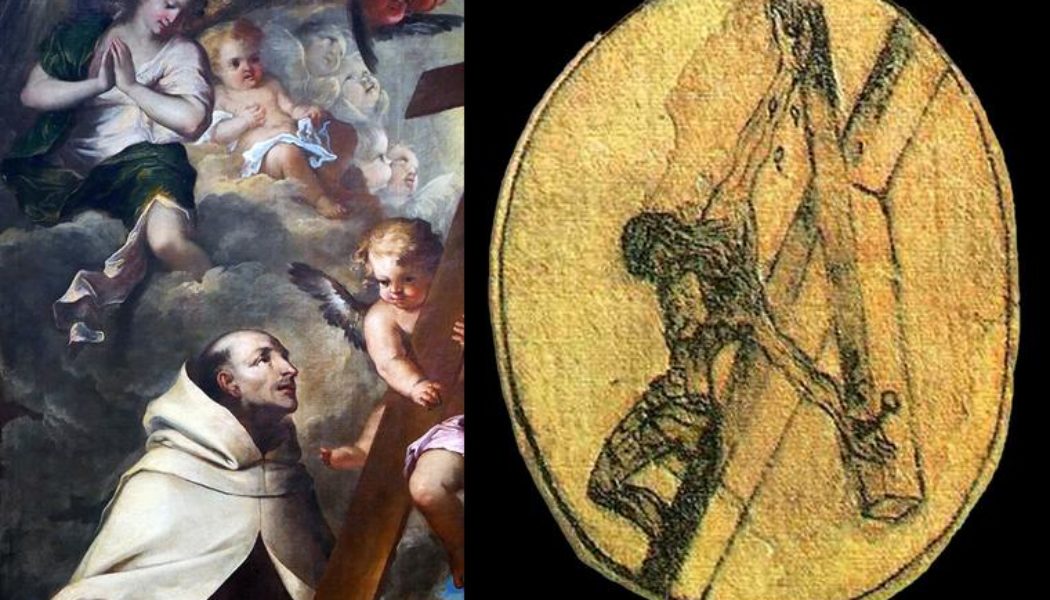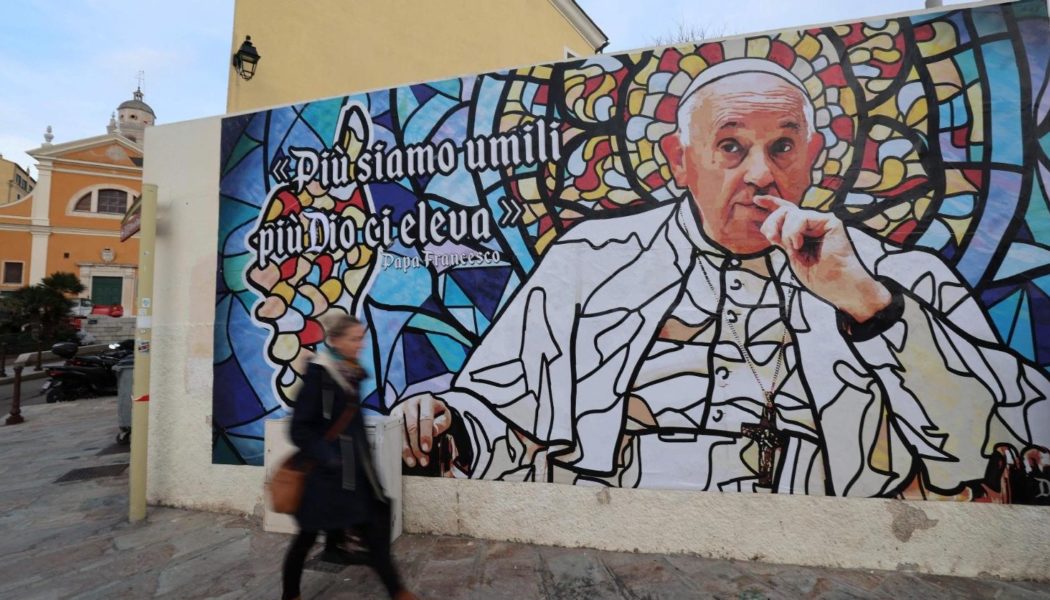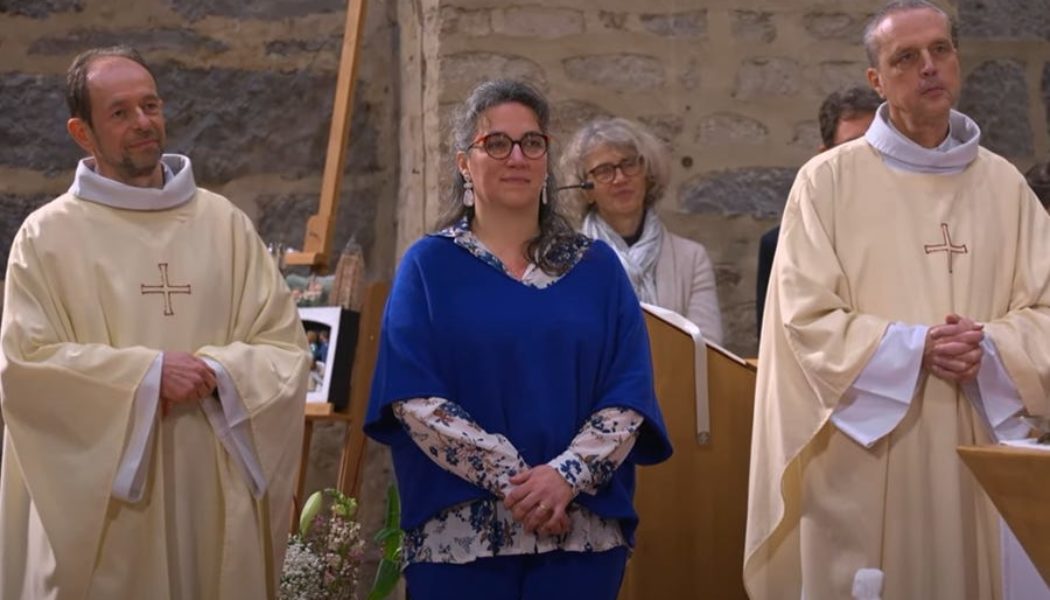Discover
Rejoice, The Lord Is Near — Have No Anxiety At All…
3rd Sunday of AdventFr. Victor Feltes A story is told of an old American Indian speaking to his young grandchild seated at his feet. “Inside of me there are two wolves,” the grandfather explains. “One of these wolves is virtuous: patient, kind, chaste, generous, forgiving, and loving. But the other wolf is vicious: angry, cruel, lustful, greedy, unforgiving, and hateful. These wolves are battling within me in a fight to the death.” The child asks, “Which wolf is gonna win, Grandpa?” The grandfather replies, “The one that I feed.” One bit of encouragement I often give in the confessional concerns the ideas, feelings, memories, or temptations which enter people’s minds. When people confess to having had bad thoughts or temptations, I ask, “Did you will them? Did you choose them? Did you welc...
Pope Francis Visits Corsica: ‘Popular Piety Fosters Evangelization and Community’…
Addressing the “Conference on Popular Piety in the Mediterranean” in Ajaccio, Pope Francis highlights the importance of these expressions of faith as a means of fostering evangelization in our increasingly secularized societies and communities. By Lisa Zengarini Far from being an obsolete folkloristic expression, popular piety can be a powerful means for evangelization today, fostering community and belonging, Pope Francis said in his first speech during his Apostolic Journey to Corsica. 15/12/2024 Pope Francis has boarded the papal plane and left Italy, travelling to the French island of Corsica. Speaking at the Palais des Congrès et d’Exposition of Ajaccio at the conclusion of the “Congress on Popular Piety in the Mediterranean”, the Pope reiterated that the “acti...
This Sunday, He Commands You to Rejoice: 5 Takeaways for Gaudete Sunday…
This Sunday is Gaudete (Rejoice) Sunday, the Third Sunday of Advent, Year C. It’s called that for several reasons: “Rejoice” is the first word of the Entrance Antiphon at Mass; the pink candle means we’re more than halfway to Christmas; and the readings stop focusing on the terrible times to come and start expecting the joy that’s nearly here. Here are six takeaways from the readings at Mass, taken from previous “This Sunday” columns. First: I, for one, rejoice that St. John the Baptist’s message isn’t harsh. John the Baptist tells the disciples what God expects of them, and it turns out to be … love. The crowd gathers around this intense insect-eating prophet in camel hide. They have been moved by his insistent preaching and his radical lifestyle, and they are ready to take the next step....
Why Do the Gospels Tell Us So Little About Jesus’ Childhood?
By Clement Harrold December 13, 2024 For believers who take the Word of God seriously, the near-deafening silence on the part of the four evangelists about the so-called “hidden years” of Jesus—those thirty or so years between His birth and the beginning of His ministry—can be a source of disappointment. Wouldn’t it be exciting to hear some anecdotes about the Holy Family’s beach vacation on the Sea of Galilee? And wouldn’t young people benefit from a stirring tale of Jesus’s devotion to prayer and virtue during his adolescence? These are fair questions, yet for some reason the Holy Spirit didn’t see it that way. Why might that be? As far as we can tell, the underlying reason why the Gospels are largely silent about Jesus’s childhood and adolescence is to underscore the normality and humil...
The Mystical Art of St. John of the Cross…
SAINTS & ART: From his mystical poetry to his unique sketch of Christ Crucified, St. John of the Cross reveals the beauty of suffering in union with God. John de Yepes came into the world in Spain in 1542, the child of silk weavers. He grew up poor, was apprenticed, and had the fortune partially to attend a Jesuit-run school. Severe in his mortifications, he had visions calling him to religious life in its austere grandeur. In 1563, he entered the Carmelites, taking the name-in-religion of John of St. Matthias. John lived in the Spain of St. Teresa of Ávila. She was engaged in efforts to reform the Carmelite order by returning to its more rigorous, primitive roots. John began to implement the reforms of what would become the Discalced (“barefoot”) Carmelites in a male community, workin...
Pope Francis Set to Visit French Island of Corsica on Sunday — 47th Trip Abroad During Papacy…
On 15 December, Pope Francis’ 47th Apostolic Journey abroad will take him to Corsica, known as the Île de beauté, where he will take part in the Conference on Popular Religiosity in the Mediterranean before meeting with the clergy and faithful of the French island. By Salvatore Cernuzio On the one hand, popular piety, the faith of ordinary people, expressed in pilgrimages, acts of devotion in sanctuaries, traditional songs and prayers; on the other, the Mediterranean with its challenges, the echoes of war, the tragedy of migration that has turned the Mare Nostrum into an ‘open-air cemetery’: Pope Francis’ apostolic journey on 15 December to Corsica, Napoleon’s birthplace, known as Île de beauté, the “island of beauty” with its landscapes framed by forests, beaches and mountains, enda...
Nancy Pelosi Is Half Right: Her Soul Is Her Bishop’s ‘Problem’…
EDITORIAL: In a recent interview, the former speaker of the House spoke about her strained relationship with her bishop, San Francisco Archbishop Salvatore Cordileone. The days are drawing nigh on the end of the political careers of Joe Biden and Nancy Pelosi, once the two most powerful Catholic politicians in the world. Given the scandal they’ve caused over the years by repeatedly distorting and openly defying some of the fundamental principles of their common faith, one might say the days can’t draw nigh soon enough. If cafeteria Catholicism were a real denomination, Biden and Pelosi would already be on a path to canonization. The highly selective catechesis they promulgate anytime they’re asked about their faith often bears a hazy resemblance to actual Catholicism, but it’s rarely the g...
Catholicism used to give me the creeps. Then I discovered the Church Fathers and my eyes were opened…..
Share via: Creepy Catholics It couldn’t have happened at any other point in my life. Let me explain. For most of my adult life, Catholicism had given me the creeps. As a young man of twenty-nine, fresh into ministry, I was privileged to take a mission trip to Campinas, Brazil. While there, our interpreter was kind enough to show us some of the local sites, including the Metropolitan Cathedral. As a budding young Baptist minister, I simply had no box for what I encountered there. The church was very large and magnificent. The outside was topped with impressive statues of I knew not who, and the inside was filled with intricate wood carvings, statuary, and even items of gold. There were also niches, each with its own statue, before which were prostrated several poverty-stricken old women wee...
‘Dumbed-Down Catholicism Was a Disaster’: The Atlantic Profiles Bishop Robert Barron and Word on Fire…
This article was featured in the One Story to Read Today newsletter. Sign up for it here. When Nick Chancey was a boy in West Virginia, he didn’t have much time for Christianity. He spent the occasional Sunday hiking into the woods with his father to offer a cup of milk and a handful of quarters to forest fairies. His dad kept a small Buddhist statue at home, and dabbled in Native American spirituality and “druid and Celtic stuff,” Chancey told me. “It was not uncommon for the Baptist preacher in his Sunday best to show up on our doorstep and for my dad to cuss the guy off the porch because he was saying we were going to hell.” Chancey’s views started to change in college. A friend invited him to the Catholic hub on campus, where he immediately felt welcome. One night, at the home of a Cat...
‘Blue Bloods’: The Most Catholic Network TV Series Bids Farewell…
The most Catholic show on network television has its finale tonight, 14 years and 283 episodes after its premiere in September 2010. Blue Bloods has had an extraordinary run in a time when network television has been hemorrhaging audiences. Blue Bloods is not only a police drama. It’s a family drama about a police family. Tom Selleck stars as Francis (Frank) Xavier Reagan, the Irish Catholic police commissioner of New York City. Widowed, he lives with his widower father, Henry Reagan, who also served as the NYPD commissioner, now retired. Frank has three sons, all New York policemen, though corrupt cops killed the eldest before the series begins. His daughter is an assistant district attorney in Manhattan. Law enforcement is the family business. There have been other family crime shows — e...
Christmas Calls for Tradition and Creativity…
The story is told of the family that year after year, regardless of the neighbors raising questions, was true to their tradition of cutting the leg of a pig a little shorter than normal butchering practice. Eventually it came to light that their particular practice had no basis other than the diminutive size of some ancestor’s pot—a pot long out of use. The practice of traditions–including at Christmas–need not be slavish or undiscerning. At the same time, in Aristotle and Aquinas’s worldview all change has meaning from its relation to stable realities. The stable and enduring is the gold standard; it gives direction and purpose to change. The observance of ‘traditions’ should be considered in this light, especially at this most tradition-rich time of year. Hilaire Belloc offers a unique a...
Female ‘Episcopal Delegate’ Added to Eucharistic Prayer Alongside Pope and Bishop in Belgian Province…
Lay ‘episcopal delegate’ added to Eucharistic Prayer in Belgian province Skip to content Pastors in a Belgian province have been asked to include an episcopal delegate in the Eucharistic Prayer at Masses. Rebecca Alsberge, episcopal delegate for the vicariate of Brabant Walloon, Belgium. Screenshot from @vicariatdubrabantwallon4305 YouTube channel. A Nov. 6 archdiocesan memo to clergy in the vicariate of Brabant Walloon, a French-speaking area south of the capital, Brussels, proposed naming Rebecca Alsberge alongside the pope and the local bishop in the Eucharistic Prayer. Leave a comment In Belgium, an episcopal delegate is a territorial coordinator responsible for a region of a diocese. The position is called in some countries a regional vicar — though the term “vicar” is reserved for re...




